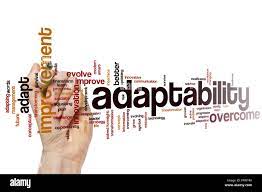Physical Wellness:
This dimension focuses on nurturing the body through healthy habits. It involves regular exercise, balanced nutrition, adequate sleep, and preventive healthcare. Engaging in physical activities that suit individual preferences—whether it's yoga, running, weight training, or dancing—contributes to overall physical fitness and vitality. A balanced diet rich in nutrients, hydration, and avoiding harmful habits like smoking or excessive alcohol consumption are fundamental for physical wellness.

Mental and Emotional Wellness:
Mental and emotional well-being involves managing stress, cultivating resilience, and maintaining a positive outlook. Practices such as mindfulness, meditation, deep breathing exercises, and seeking professional help when needed aid in managing stress and fostering emotional resilience. Developing emotional intelligence, self-awareness, and practicing self-care routines contribute significantly to mental wellness.
Social Wellness:
Building and nurturing positive relationships with family, friends, colleagues, and the community is crucial for social wellness. Meaningful connections, open communication, empathy, and support systems play a pivotal role in overall well-being. Engaging in social activities, volunteering, and participating in group activities foster a sense of belonging and connection.
Spiritual Wellness:
Spiritual wellness does not necessarily relate to religion but involves seeking purpose, meaning, and connection to something larger than oneself. For some, this might involve religious practices, while for others, it could mean connecting with nature, meditation, mindfulness, or exploring philosophical questions about life and existence. Spiritual wellness provides a sense of inner peace, purpose, and alignment with personal values.
Environmental Wellness:
Acknowledging the interconnectedness between personal well-being and the health of the environment contributes to overall wellness. Adopting eco-conscious behaviors such as reducing waste, supporting sustainability efforts, spending time in nature, and advocating for environmental causes aligns environmental wellness with personal health.
Professional and Occupational Wellness:
Finding fulfillment and satisfaction in one's work is crucial for overall wellness. This involves maintaining a healthy work-life balance, setting boundaries, pursuing passions, continuous learning and growth, and finding meaning and purpose in professional endeavors.
Financial Wellness:
Financial stability and planning contribute significantly to overall well-being. Managing finances effectively, setting budgets, saving for the future, and making informed financial decisions reduce stress and provide a sense of security.
Intellectual Wellness:
Stimulating the mind through continuous learning, curiosity, and intellectual pursuits is vital. Engaging in activities that challenge the mind, such as reading, learning new skills, exploring diverse perspectives, and critical thinking, contributes to intellectual wellness.
Cultural and Recreational Wellness:
Exploring and embracing different cultures, engaging in recreational activities, and pursuing hobbies and interests add richness to life. This dimension includes embracing art, music, travel, and other leisure activities that bring joy and fulfillment.
Time Management and Prioritization:
Balancing various aspects of wellness requires effective time management and prioritization. Allocating time for different dimensions of wellness based on individual needs and values is key to maintaining a well-rounded lifestyle.
In summary, a wellness lifestyle involves nurturing multiple dimensions of well-being, recognizing their interconnectedness, and making intentional choices that promote a balanced and fulfilling life. By fostering harmony across these dimensions, individuals can experience a sense of vitality, contentment, and resilience in their daily lives.
Physical Wellness:
Physical wellness goes beyond just exercise and diet. It involves regular health check-ups, preventive screenings, and being attuned to one's body. Additionally, practices like stretching, massage, and maintaining proper posture contribute to physical well-being. Embracing habits that foster good posture, ergonomics, and ergonomically designed workspaces can prevent physical strain and injuries.
Mental and Emotional Wellness:
Emotional wellness entails acknowledging and managing emotions effectively. This includes practicing resilience in the face of challenges, fostering healthy coping mechanisms, and seeking support when needed. Embracing creative outlets like art, music, or writing serves as a therapeutic outlet for emotional expression.
Social Wellness:
Building and maintaining relationships involve effective communication, empathy, and conflict resolution skills. This dimension includes nurturing diverse relationships, maintaining healthy boundaries, and being present and supportive in interpersonal connections. Engaging in community events, clubs, or groups aligned with personal interests fosters a sense of community and belonging.
Spiritual Wellness:
For some, spiritual wellness involves exploring beliefs, values, and a sense of purpose. Practices such as gratitude, reflection, and mindfulness contribute to spiritual well-being. Engaging in activities that foster introspection and connecting with one's inner self can lead to a deeper sense of fulfillment and purpose.
Environmental Wellness:
Supporting sustainable practices in daily life, such as reducing waste, conserving resources, and advocating for environmental causes, contributes to environmental wellness. Spending time in nature, practicing eco-friendly habits, and supporting initiatives that protect the environment align personal health with the health of the planet.
Professional and Occupational Wellness:
Finding satisfaction and fulfillment in work involves aligning one's career with personal values and interests. Creating a work environment that promotes growth, setting achievable goals, and finding a balance between work and personal life enhances professional wellness.
Financial Wellness:
Financial well-being involves setting financial goals, budgeting, saving, and managing debt effectively. Creating a financial plan that aligns with personal aspirations and provides a sense of security contributes to overall well-being.
Intellectual Wellness:
Intellectual wellness involves stimulating the mind through lifelong learning and curiosity. Engaging in intellectual pursuits, debates, discussions, and exploring new interests or hobbies fosters mental agility and creativity.
Cultural and Recreational Wellness:
Exploring cultural diversity, embracing different traditions, and engaging in recreational activities broadens perspectives and brings joy. Traveling, attending cultural events, participating in sports or artistic endeavors contribute to a well-rounded life.
Balance and Adaptability:
Achieving a wellness lifestyle requires a flexible approach and adaptability. Recognizing that life may fluctuate between various dimensions at different times, and adapting to these changes with resilience and flexibility, is crucial to maintaining overall balance.
A wellness lifestyle isn’t about perfection in each dimension but about cultivating awareness, making intentional choices, and embracing habits that contribute positively to holistic well-being. By nurturing these dimensions, individuals can strive for a balanced and fulfilling life that supports their overall health and happiness.



You must be logged in to post a comment.